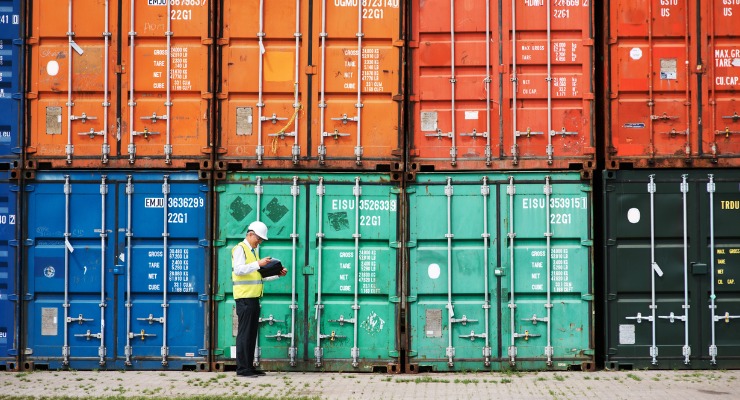
The Incoterm Cost Insurance Freight (CIF) is popular with buyers because much of the responsibility of organising and paying for shipping insured goods sits with the seller.
What is CIF in Shipping Terms?
CIF stands for Cost Insurance Freight (CIF).The seller organises the freight and insurance that covers the potential loss or damage of goods while in transit to the buyer’s port. The destination often appears after CIF on documentation to avoid any misunderstanding about where the goods are being shipped. When goods are loaded on to the ship, the risk transfers to the buyer, even before departure.
Any added customs or export paperwork are organised and paid for by the seller. The minimum documents involved in the transaction include the invoice, insurance policy, and the bill of lading which represents the cost, insurance and freight.
How Does CIF Insurance Work?
To make sure goods are correctly insured, they use the formula of CIF value x 110%. CIF value is the commercial invoice value + insurance costs + freight. The 10% covers any unforeseen costs. The insurance can cover the repair or replacement of goods at a location other than the consignee’s facility. An insurance claim may be prorated if part of the shipment is lost or damaged.
CIF requires Clause C (Institute of Cargo Clauses) which is a basic level of insurance suitable for bulk commodity cargoes but not manufactured goods. Incoterms 2020 requires CIP use a higher quality insurance (Clause A) as it’s often used for manufactured goods.
If a shipment is underinsured, the insurer may only pay a percentage of the shipment.
If goods arrive damaged, someone on the dock should make a note on the bill of lading at the time of arrival to help with the insurance claim.
Who Pays for CIF Shipping?
The seller pays for and arranges the insurance and freight. It’s a popular Incoterm because the buyer knows the final cost of goods and need not organise the shipping and insurance suppliers. A seasoned buyer may prefer to organise these suppliers to get the best deal and avoid any premium for the seller to do the work.
An Example of CIF (Cost, Insurance, and Freight)
An Australia company requests a quote for a container of widgets from a Chinese manufacturer who provides a CIF price. The buyer agrees with the CIF quote and is happy the seller will arrange freight, insurance and related paperwork.
The seller delivers the goods and documentation to the port. Shipping staff load the goods on to the ship and it departs China. On the trip to Australia, the ship encounters bad weather, and the container falls overboard. The carrier notifies the buyer that they lost their delivery at sea. Using the insurance policy organised by the seller, the buyer claims the insurance for the goods because they assumed risk when the goods went on the ship.
Incoterm CIF
Incoterms are trade rules developed by the International Chamber of Commerce (ICC) in 1936 to reduce the number of communication breakdowns and disagreements around shipping. The three-letter abbreviations make it clear if the buyer or seller organises and pays for which carriage, insurance and customs. The Incoterm also determines who takes responsibility for the goods at different stages of the journey.
CIF is one of the Incoterms that relate to sea and inland waterway transport only. If the goods need to make part of their journey by other modes of transport such as rail, CIF isn’t suitable. Carriage and Insurance Paid To (CIP) must be used instead.
The Incoterms were last published in 2010 with the next Incoterm edition due in 2020, taking effect on 1 January 2020.
FAQs About CIF
These are some frequently asked questions about the shipping term CIF.
Does CIF include duty?
No, CIF doesn’t include any customs or duty charges. The buyer is responsible for paying any customs duty.
How is the CIF value calculated for import?
The calculation of CIF is:
Goods invoice + Insurance + Freight + Ex-work Charges
If you need any help with sourcing a manufacturer in China and shipping your goods to Australia, call Vara Allied on (08) 6161 8041 or contact us online.